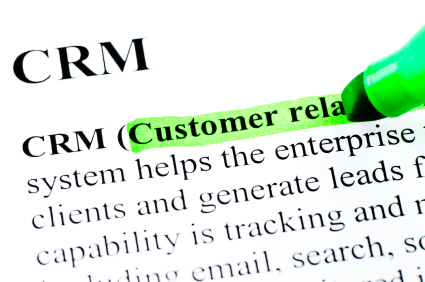Where once adding a person’s name into an email or a text message was deemed to be enough personalisation, customers now expect more. Brands need to begin to think about more sophisticated ways of personalising messages or risk being left behind and losing savvy customers to the competition. If a customer feels like they are being targeted with content that is valuable to them they are more likely to buy from a brand and establish a long-term relationship. Marketers are now finding themselves awash with more data than they once dreamed possible so more personalised targeting is now a definite option.
The key to enabling companies to differentiate themselves and build their brand in a more effective way through more personalised marketing campaigns is CRM. Mobile CRM in particular, which has been cited as a hot trend for 2013, will create enhanced, relevant customer experiences by giving brands a better understanding of how current and potential customers would like to be communicated with and via which channels, all in real time. CRM allows a brand to move away from simply addressing a customer by their name, to referring to purchase history, interests and relevant locations.
CRM has always involved data, but very structured data such as contact information, latest contacts, products bought and so on. The next stage of personalisation, and one which we are seeing now, is Big Data CRM. Whereas CRM is about managing the customer relationship Big Data CRM goes one step further and is all about servicing the customer. Brands are more frequently using the terminology ‘360 degree view of the customer’, and Big Data CRM has the potential to unleash an incredibly powerful experience for consumers especially when combined with location.
Let’s take this one step further and introduce hyper-personalisation, yet another buzzword to add to the ever-evolving world of targeting. Integrating customer transaction history, online behaviour data, and social information, hyper-personalisation provides a powerful foundation for creating individualised customer messages. As we move into the age of Big Data, marketers have the opportunity to take the conversation and the customer experience to a new level with digital and social data allowing brands to target customers in a more informed way.
For many brands though, there is still an element of confusion as to how easy it is to engage with customers through personalisation and some are still unaware of the wealth of possibilities there are available to enrich communication and build customer loyalty. At the other end of the spectrum, it’s very important to ensure that personalisation isn’t taken to extremes and that data is used wisely, otherwise intense targeting could be off putting as opposed to attractive to those consumers who are yet to get to grips with location-based marketing, for example.
Targeting en masse should be handled with care and is not something that should be rushed in to. If you have reams of data, use it carefully. It’s important to look at your customers as individuals and understand that while they might like the idea of a customised service, they may not like the idea of people knowing too much about them. Make sure you filter the data you have before targeting your customer so they aren’t scared off by the fact that you know exactly what they bought last and where they bought it from.
A good example of personalisation done well is O2 More. An opt-in marketing service, supported by an intelligent communications platform, that delivers highly personalised campaigns for advertisers using data held on O2’s customer databases so that businesses can target based on phone usage or location. For example – in a partnership with Starbucks, O2 deployed a campaign across the UK that incorporated voucher redemption, which saw an impressive response rate of 34%.
So, now you know all there is to know about Big Data CRM and that hyper-personalisation is at your fingertips, what’s the most efficient way to disseminate your personalised messages? By introducing an intelligent communications platform businesses can push out more tailored experiences and messages on their websites, in social media and on mobile. It’s the perfect way to keep track of your personalised messages across all modes of communication at any one time.
Personalisation in customer communication, whether achieved with CRM in its simplest form, integrated with Big Data or complemented by hyper-personalisation, is one of the most powerful marketing tools a business can implement to drive brand loyalty and success. When integrated into a campaign that considers all modes of communication thoroughly, has an intelligent communications platform in place behind the scenes to broadcast from that provides control over content, timing and location, the future for personalisation is set to be a very exciting one, for everyone involved.






